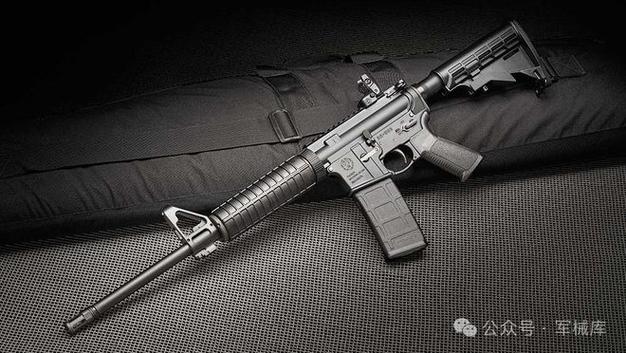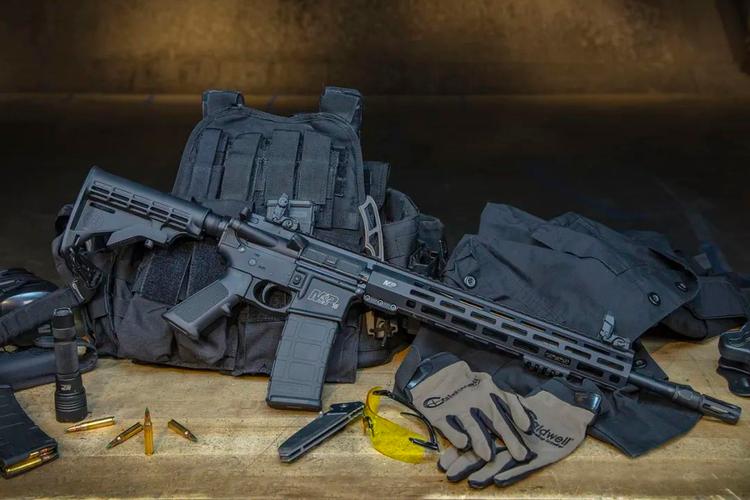AR-15 Control Group: A Comprehensive Overview
The AR-15, a semi-automatic, gas-operated firearm, has gained immense popularity worldwide. Known for its modularity and accuracy, it has become a staple in both civilian and military circles. In this article, we will delve into the various aspects of the AR-15 control group, providing you with a detailed and multi-dimensional introduction.
Design and History
The AR-15 was designed by Eugene Stoner in the early 1950s for the United States military. It was initially intended to replace the M1 Garand and M1 carbine. The rifle’s name, “AR,” stands for “Armalite Rifle,” as it was developed by ArmaLite, Inc. Over the years, the AR-15 has undergone several modifications and improvements, leading to various models and variants.

One of the key features of the AR-15 is its modular design. This allows users to easily customize the rifle to suit their specific needs. The rifle’s receiver, which houses the action, is the central component that connects all the other parts. The receiver is available in various materials, such as aluminum, steel, and polymer, each offering different advantages in terms of weight, durability, and aesthetics.
Caliber and Ammunition
The AR-15 is available in various calibers, with the most common being .223 Remington and 5.56x45mm NATO. The .223 Remington is a popular choice for hunting and recreational shooting, while the 5.56x45mm NATO is favored for its effectiveness in military and law enforcement applications.
The ammunition used in the AR-15 is designed to provide high velocity and excellent terminal ballistics. The rifle’s magazine capacity varies depending on the model, with some variants holding up to 30 rounds. It is essential to use high-quality ammunition to ensure reliable performance and accuracy.
Components and Accessories
The AR-15 is a highly customizable firearm, with numerous components and accessories available to enhance its performance and aesthetics. Some of the most popular accessories include:

| Component/Accessory | Description |
|---|---|
| Barrel | Available in various lengths and profiles, the barrel affects the rifle’s weight, balance, and accuracy. |
| Handguard | Protects the barrel and allows for the attachment of various accessories, such as optics, lasers, and flashlights. |
| Stock | Adjustable stocks allow for a custom fit and can be replaced with various designs, such as collapsible or fixed stocks. |
| Optics | From red dots to scopes, optics play a crucial role in enhancing the rifle’s accuracy and target acquisition. |
| Magazine | High-capacity magazines are available for those who require extended ammunition storage. |
Performance and Reliability
The AR-15 is renowned for its exceptional performance and reliability. The rifle’s gas-operated action ensures consistent cycling of the rounds, even under adverse conditions. The rifle’s lightweight design and ergonomic features make it comfortable to carry and shoot for extended periods.
Several factors contribute to the AR-15’s reliability, including:
- High-quality components and materials
- Modular design, allowing for easy maintenance and upgrades
- Robust action and gas system
- Accurate and consistent ammunition feeding
Regulations and Safety
As with any firearm, the AR-15 is subject to various regulations and safety considerations. It is essential to familiarize yourself with the laws and regulations in your area regarding the ownership, possession, and use of the rifle. Additionally, always follow safe firearm handling practices, such as keeping the firearm pointed in a safe direction, keeping your finger off the trigger until ready to shoot, and ensuring the firearm is unloaded when not in use.
Conclusion
The AR-15 control group is a versatile and reliable firearm that has earned its reputation as a favorite among shooters worldwide. Its modular design, performance, and accuracy make it an excellent choice for a wide range of applications,
